Understanding Women’s Rights in Islam: A Basic Guide
Women’s rights in Islam are often misunderstood, leading to misconceptions about the treatment and status of women in Muslim communities. This article aims to clarify these misconceptions by exploring the true principles and teachings of Islam regarding women’s rights, supported by examples from the Qur’an and authentic Hadith.
The Role of Women in Islam
Islam places great importance on the family unit and assigns specific roles to men and women, which are complementary rather than hierarchical. The differences between men and women are recognized and respected, acknowledging that each gender has unique strengths and responsibilities.
Love and Mercy in Spousal Relations
Islam encourages love and mercy in the relationship between husband and wife. The Prophet Muhammad (peace be upon him) emphasized the importance of treating spouses with kindness and respect.
Qur’an 30:21 states,
“And among His signs is that He created for you mates from among yourselves that you may dwell in tranquility with them; and He has put love and mercy between your (hearts).”

The Prophet Muhammad (peace be upon him) said, “The best of you are those who are best to their wives” (Sunan Ibn Majah 1978).
He actively participated in household chores, demonstrating that domestic responsibilities should be shared. Aisha, the Prophet’s wife, said about him “He used to keep himself busy serving his family and when it was time for the prayer, he would get up for prayer.” (Sahih al-Bukhari 6039).
The High Status of Mothers and Daughters
In Islam, mothers hold a particularly esteemed position due to their significant role in nurturing and raising children. The Prophet Muhammad (peace be upon him) highlighted the importance of treating mothers with the utmost respect and kindness, often placing their rights above those of fathers.
Qur’an 31:14 states,
“And We have enjoined upon man [care] for his parents. His mother carried him, [increasing her] in weakness upon weakness, and his weaning is in two years. Be grateful to Me and to your parents; to Me is the [final] destination.”
The Prophet Muhammad (peace be upon him) was asked, “Who among people is most deserving of my good treatment?” He said, “Your mother.” The man asked, “Then who?” The Prophet replied, “Your mother.” The man asked again, “Then who?” The Prophet replied, “Your mother.” The man asked once more, “Then who?” The Prophet finally replied, “Then your father” (Sahih al-Bukhari 5971).
Additionally, raising daughters is given special recognition in Islam. The Prophet Muhammad (peace be upon him) said, “There is no man whose two daughters reach the age of puberty and he treats them kindly for the time they are together, but they will gain him admittance to Paradise.” (Sunan Ibn Majah 3670).
Women’s Rights and Responsibilities
Equal Reward and Accountability
In Islam, men and women are seen as equals in their spiritual obligations and are judged based on their actions rather than their gender. Both men and women are equally encouraged to seek knowledge and engage in acts of worship.
Qur’an 33:35 states,
“Indeed, the Muslim men and Muslim women, the believing men and believing women, the obedient men and obedient women, the truthful men and truthful women, the patient men and patient women, the humble men and humble women, the charitable men and charitable women, the fasting men and fasting women, the men who guard their private parts and the women who do so, and the men who remember Allah often and the women who do so – for them Allah has prepared forgiveness and a great reward.”
Right to Knowledge
Education is a fundamental right for both men and women in Islam. The Prophet Muhammad (peace be upon him) stated, “Seeking knowledge is an obligation upon every Muslim” (Sunan Ibn Majah 224). Historically, many women have been prominent scholars in Islam, contributing significantly to Islamic jurisprudence and education.

Qur’an 20:114 says,
“My Lord, increase me in knowledge.”
Right to Choose a Spouse
Islam grants women the right to choose their spouses and maintain their family names after marriage. Forced marriages are strictly prohibited in Islam. The story of a woman at the time of the Prophet who was forced into marriage but later given the choice to annul it serves as a powerful example of this right.
A woman came to the Prophet Muhammad (peace be upon him) and said, “A girl came to the Prophet and said: ‘My father married me to his brother’s son so that he might raise his status thereby.’ The Prophet gave her the choice, and she said: ‘I approve of what my father did, but I wanted women to know that their fathers have no right to do that.’ ” (Sunan Ibn Majah 1874).
Equality in Rights and Responsibilities
While men and women in Islam have equal rights in many aspects, their roles and responsibilities are not identical. This differentiation is based on the natural differences between genders and aims to ensure that each gender’s strengths are utilized effectively for the benefit of the family and society.
Qur’an 4:32 states,
“And do not wish for that by which Allah has made some of you exceed others. For men is a share of what they have earned, and for women is a share of what they have earned. And ask Allah of His bounty. Indeed Allah is ever, of all things, Knowing.”
Conclusion
Before the advent of Islam, women were often subjected to severe injustices, including infanticide, lack of inheritance rights, and widespread oppression. Islam abolished these practices and granted women dignity, respect, and a comprehensive set of rights. Despite misconceptions and cultural practices that sometimes deviate from true Islamic teachings, Islam remains a religion that honors and values women.

“O mankind, indeed We have created you from male and female and made you peoples and tribes that you may know one another. Indeed, the most noble of you in the sight of Allah is the most righteous of you. Indeed, Allah is Knowing and Acquainted.”
– Qur’an 49:13
Final Thoughts
The treatment of women in Islam, when understood in its true context, reveals a faith that advocates for equality, respect, and justice. The Qur’an and the teachings of the Prophet Muhammad (peace be upon him) provide a robust framework for ensuring women’s rights, challenging the narrative that Islam is inherently oppressive to women. By understanding and disseminating these principles, we can help dispel myths and promote a more accurate understanding of women’s rights in Islam.
Learn more about Islam
Delve into the depths of Islamic knowledge with our collection of books, covering a range of topics such as Islamic law, Quranic studies, Hadith, and more.
-
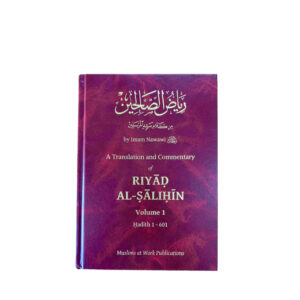 Riyad Al-Salihin Volume 1 by Imam NawawiR899,99
Riyad Al-Salihin Volume 1 by Imam NawawiR899,99 -
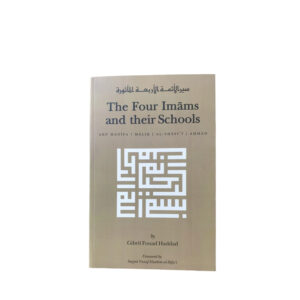 The Four Imams And Their Schools by Gibril Fouad HaddadR499,99
The Four Imams And Their Schools by Gibril Fouad HaddadR499,99 -
 The Forbidden Rumi by Nevit O. Ergin and Will JohnsonR499,99
The Forbidden Rumi by Nevit O. Ergin and Will JohnsonR499,99 -
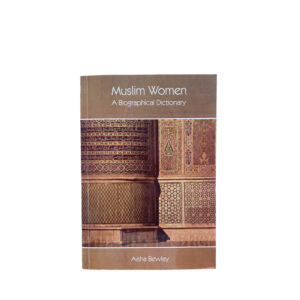 Muslim Women: A Biographical Dictionary by Aisha BewleyR269,99
Muslim Women: A Biographical Dictionary by Aisha BewleyR269,99 -
 Secrets Of Divine Love by A. HelwaR435,00
Secrets Of Divine Love by A. HelwaR435,00 -
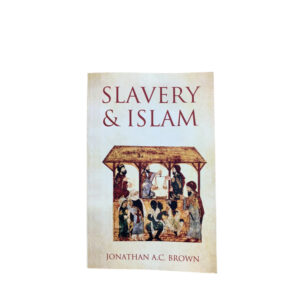 Slavery & Islam by Jonathan A.C. BrownR329,99
Slavery & Islam by Jonathan A.C. BrownR329,99 -
 Advisors Of The Prophet by Abdul Aziz As-ShanawiR99,99
Advisors Of The Prophet by Abdul Aziz As-ShanawiR99,99 -
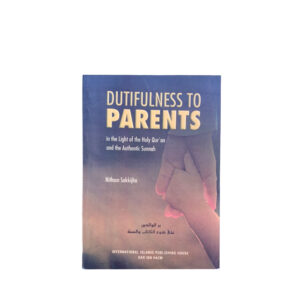 Dutifulness To Parents by Nitham SakkijhaR49,99
Dutifulness To Parents by Nitham SakkijhaR49,99 -
 The Daughters of Prophet Muhammad by Nafees KhanR274,99
The Daughters of Prophet Muhammad by Nafees KhanR274,99 -
 365 Sahaba Stories by Khalid PerwezR399,99
365 Sahaba Stories by Khalid PerwezR399,99 -
 Children’s Quran Stories: A Classic Treasury by Saniyasnain KhanR369,99
Children’s Quran Stories: A Classic Treasury by Saniyasnain KhanR369,99 -
 Bedtime Quran Stories by Saniyasnain KhanR369,99
Bedtime Quran Stories by Saniyasnain KhanR369,99 -
 Best Loved Quran Stories by Saniyasnain KhanR369,99
Best Loved Quran Stories by Saniyasnain KhanR369,99 -
 The Great Caliphs: Stories of The Sahara for KidsR174,99
The Great Caliphs: Stories of The Sahara for KidsR174,99 -
 The Prophet Muhammad Storybook 1R249,99
The Prophet Muhammad Storybook 1R249,99 -
 The Prophet Muhammad Storybook 2R249,99
The Prophet Muhammad Storybook 2R249,99



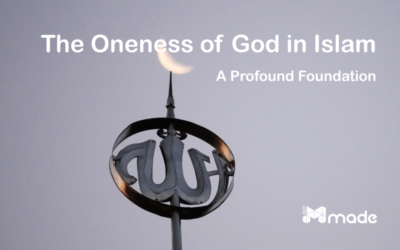







Leave a Reply
You must be logged in to post a comment.